
It took a UBC Go Global seminar in Tanzania to bring Renata Mrema back full circle to her BC hometown, enjoying a career in an industry she had walked away from years before.
Born and raised in Kamloops, Renata’s working life started right after high school, when she took on a well-paying job in the mining industry—first as an equipment operator in the coal mines of Tumbler Ridge, then as a dispatcher at New Gold’s New Afton mine just outside Kamloops. But despite the early financial success she enjoyed, she couldn’t ignore her growing desire to contribute and create impact at a community level. As the feeling grew stronger, so did a “misalignment” with her work. It was time to pursue a different path, and that meant enrolling in post-secondary education.
At 27, Renata was realistic about being in a different place than many of her fellow classmates. Still, she searched for the right degree program and discovered the BMGT program at UBC Okanagan. “I was really attracted to the UBC management program,” she shares. “I always felt a pull towards business, but the management program was more than that—it was focused on people, and connection and the deeper conversations behind business that drew me to the management program.”
As a mature student, Renata was keenly aware she would be joining classmates with different life experiences than what she was bringing to her studies. Her initial doubts about the fit were dispelled in her first term, when she took MGMT 110 (Introduction to Management Thought and Social Responsibility). The pieces that hadn’t quite connected before suddenly fell into place and in a profound way. “I found that this class was kind of my ‘aha’ moment—corporate social responsibility just really hit home for me. I realized this is what I love, these kinds of conversations.”
A calling from afar
Having already been in the workplace and gained several years of experience, Renata was laser-focused on what she wanted out of her degree experience. She saw summers as an opportunity to compress her time, earn additional credits towards completing her degree and further enhance her education. She appreciated the BMGT program for its breadth of academic freedom and the encouragement students received to look beyond management courses.
“As a mature student, I liked that the BMGT program stepped outside the traditional constraints of a business program and dove into other areas of focus,” she says. “I was also drawn to UBC’s Go Global program, and it was one of the reasons I applied to UBCO in the first place.”
At the time, the Go Global program offered a two-credit anthropology seminar, which seemed like a natural fit with Renata’s desire for community connection. “One of the courses that was offered was Introduction to Community Based Research,” she recalls. “It was a subject I was really interested in because I was excited to learn about community-based research and putting community at the focus of my studies.”
Travel is sometimes described as being a second education, and in Tanzania, Renata experienced learning she could have never anticipated. The social networks and cooperation in the communities she visited in Tanzania felt acutely different than anything she’d known before.
“The communal society in Tanzania absolutely captured my imagination,” she says. “The Tanzanian focus on community felt so different from the lifestyle I have experienced in Canada, which is often very individualistic. I know across the country we have communities that are extremely integrated, specifically many Indigenous communities, but I had never personally experienced that level of communal support before.”
Community lessons
During semester breaks at UBCO, Renata travelled to Arusha, Tanzania, and gradually began to build a life there. After she completed her BMGT degree, she returned to Arusha and, along with her partner—an expert Kilimanjaro and safari guide—founded a tour company, where she was able to apply what she’d learned during her degree . She also consulted UBC’s Go Global program on connecting with social enterprise organizations in Tanzania.
“It was really exciting for me to sit down and say, I know about this workshop that is a social enterprise that only employs Maasai women, and this is what they do to reduce barriers so that they can earn an income or this social enterprise that only hires people with disabilities.”
Her advocacy was an intentional way to elevate conversations about social enterprise so future students could benefit from the learning opportunities. Drawing on her own experiences and passion for social activism, and a desire to step outside traditional volunteertourism experiences, Renata was “excited to create a different experience” for Go Global students, one that would showcase Tanzania authentically and powerfully.
Her tour company developed the One Tree program to help mitigate environmental concerns imposed by the tourism industry. “We started a one tree program for every client that climbed Kilimanjaro with us. They got to go into the community and plant a tree in the local communities of our crew members. They hauled their trees to the dig sites themselves,” says Renata proudly. She was adamant their clients put in a genuine effort: “I was like, you’re not getting an easy photo op for this, you have to do the work!”
In 2019, Renata and her young family relocated to Canada. After several busy years in Tanzania, it was time to reconnect with her Kamloops community.
Arriving home
The move was a big adjustment at first, but Renata began to see that there were meaningful opportunities to continue making a difference. Her first professional opportunity back on Canadian soil was with a local social service agency’s social-enterprise initiative, focused on creating low-barrier employment opportunities. From there, doors opened with local municipal government, still in the social development realm, but this time with City-wide programs and municipal grants. With a focus on social development, the learnings and passion for community-driven development that was fostered in Tanzania began to provide a real and tangible career path back home in BC.
After gaining on-the-ground experience working with nonprofits and local government, Renata then turned her sights to the corporate world. An unexpected opportunity emerged within the mining industry with her former employer, New Gold. “I always say I didn’t choose mining, that mining chose me,” she says with a laugh. While her current role in community relations is miles away from her previous mine operations role, she is using her past knowledge of the operation to highlight the good work New Gold is doing in the community.
Perhaps most exciting for Renata is being able to help administer the company’s community investment program, which provides funding to non-profits in the communities surrounding New Afton mine. “It’s kind of like a marriage of all my past experiences coming together, which is really exciting for me. I’m able to help coach nonprofits and support them in submitting a successful application before I bring it to our committee for vetting. I find it so rewarding to go back into the community after the project has been implemented and witness the meaningful work our community agencies are doing and the impact our investment program is having.”
As far as she’s come, the mining industry has done the same, she notes. “In the eight years I have been away from mining, the industry completely changed. Social responsibility really come a long way and has created a lot of opportunities to have really meaningful conversations. It’s happening in all industries, but especially in natural resources, where it’s something really important operationally,” she points out.
“As Canadians, I think we’ve become acutely aware about the need for Reconciliation with Indigenous communities and it’s been refreshing to see industry standards changing with this in mind. It’s really inspiring to be working on this side of our operations, and to have a front-row seat to see how New Gold is acting out their values.”
Toward the collective good
Renata’s ability to continually challenge her own preconceived views and that of others is a skill that has served her well in her both her academic and professional life. During her management degree, her way of looking at traditional business models and questioning “the n orm” was supported by her capstone professor, who encouraged her to look at business differently. This in turn shaped her view towards sustainability and how corporate social responsibility was just as important as finance and marketing. The skills she developed during the capstone course still inform her work to this day, because, as she explains, “communities continue to demand more social responsibility from business — and so they should.”
orm” was supported by her capstone professor, who encouraged her to look at business differently. This in turn shaped her view towards sustainability and how corporate social responsibility was just as important as finance and marketing. The skills she developed during the capstone course still inform her work to this day, because, as she explains, “communities continue to demand more social responsibility from business — and so they should.”
Her belief in a stronger community isn’t just lip service—she’s now in a place where she can help support policies and practices within her organization, while continuing to support the larger community need. It may feel daunting, especially with so many social challenges, but she believes in the “idea of a communal and supportive society.”
Looking towards the future, Renata is pragmatically optimistic, but she’s not wearing rose-coloured glasses about the continued work that lies ahead. “I believe we are living in an increasingly polarized society, with the middle ground between us growing smaller and smaller,” she says. But she’s glad to be in a role that’s helping address that challenges.
“There are so many great community agencies doing really important work, and I am so fortunate to continue to learn and grow through their expertise. I am excited to see how corporations can continue to support our increasingly complex community challenges in new and innovative ways.”
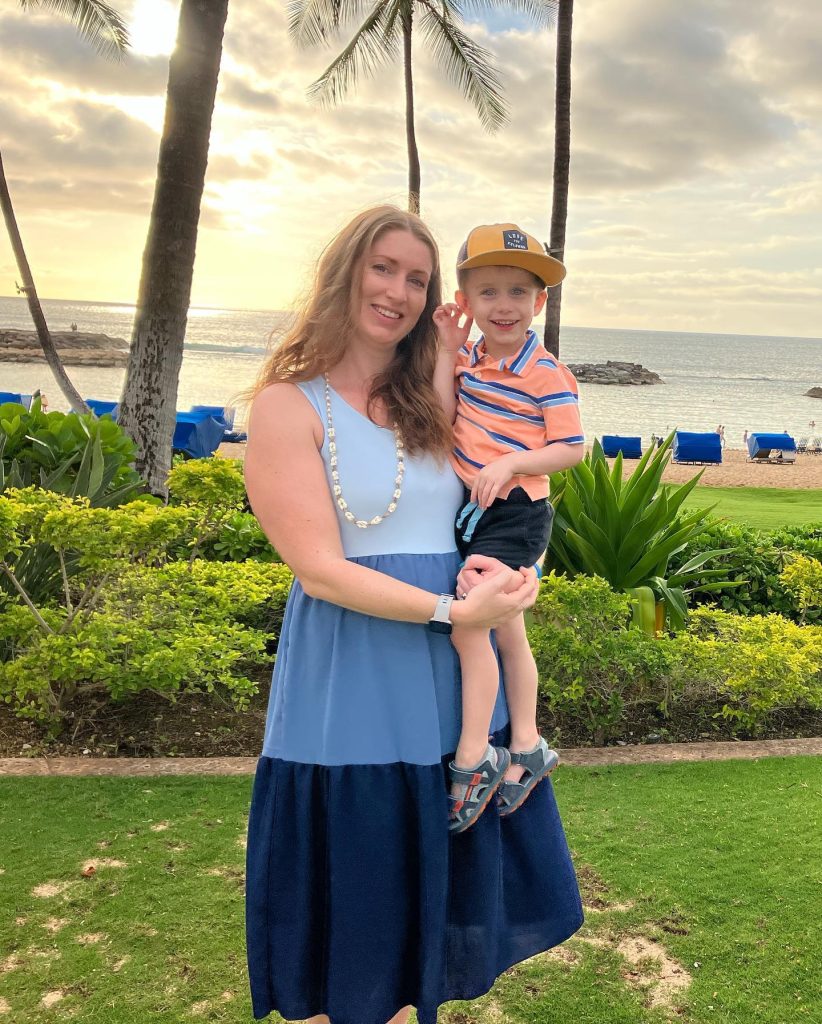
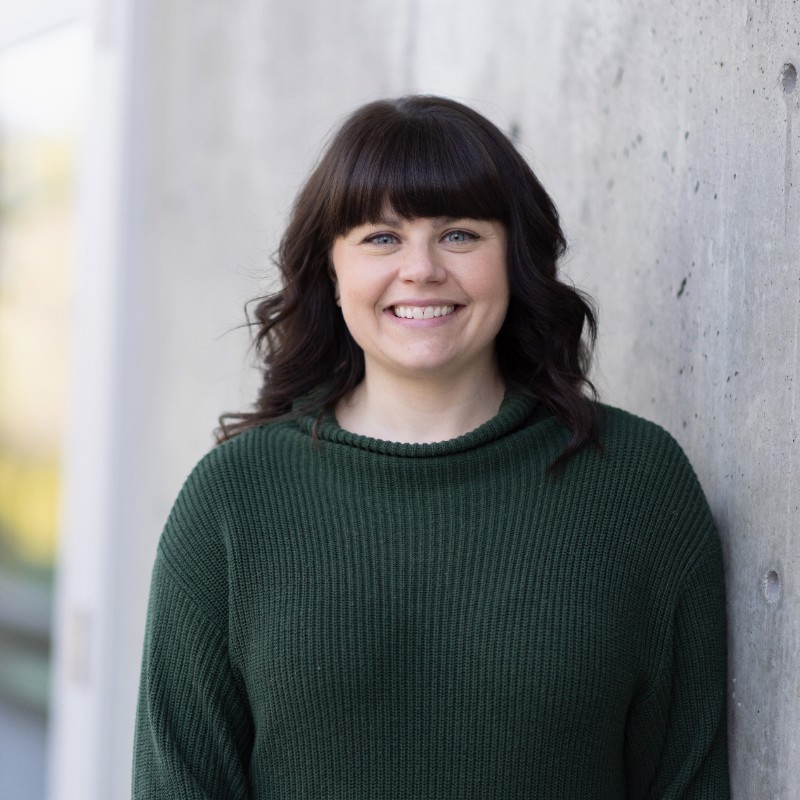
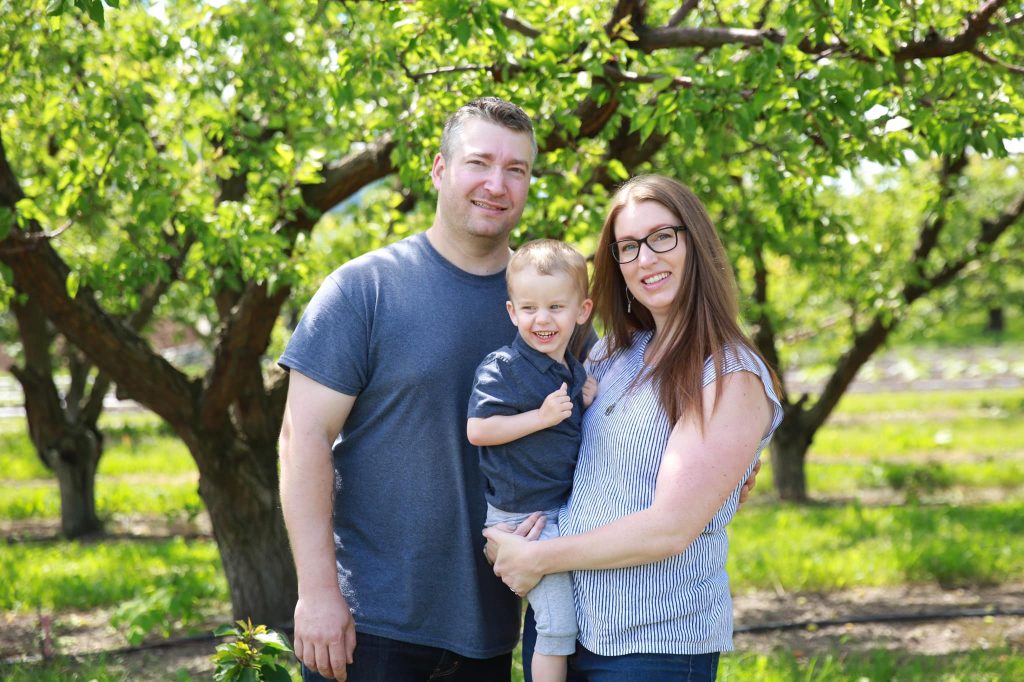




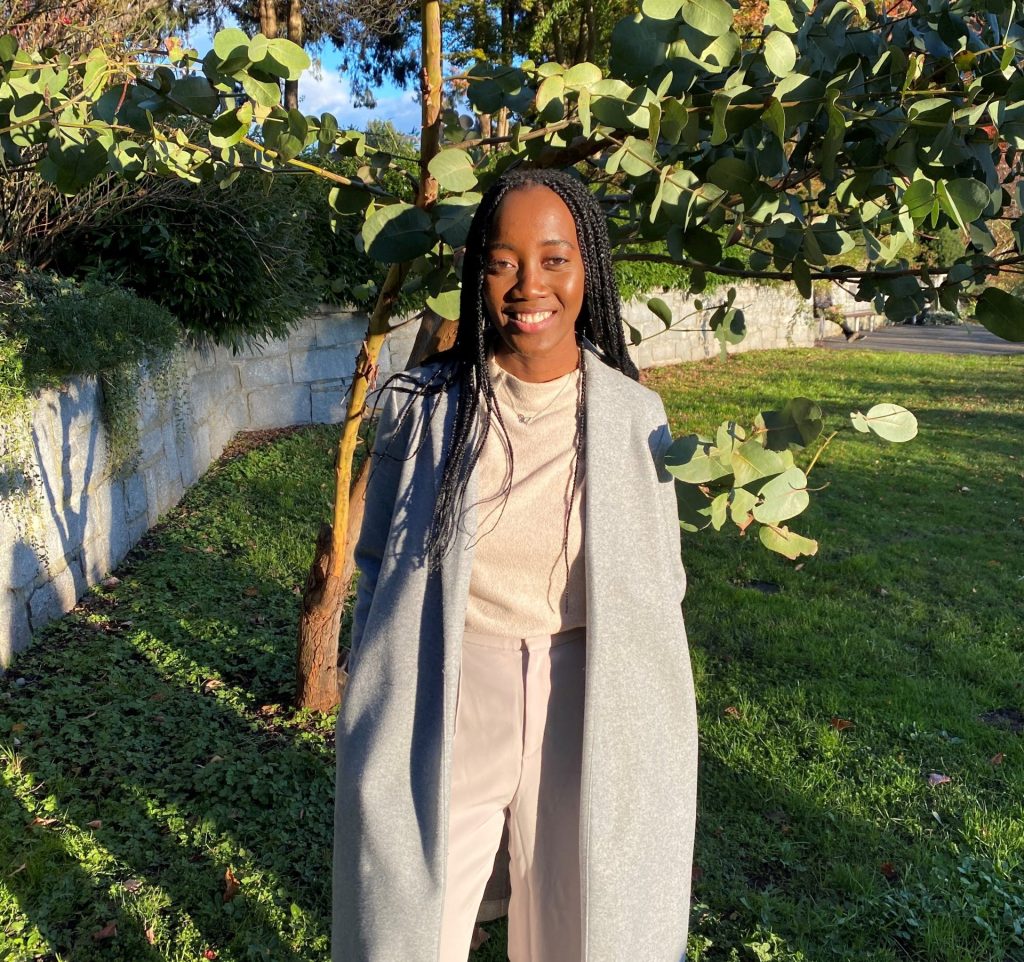
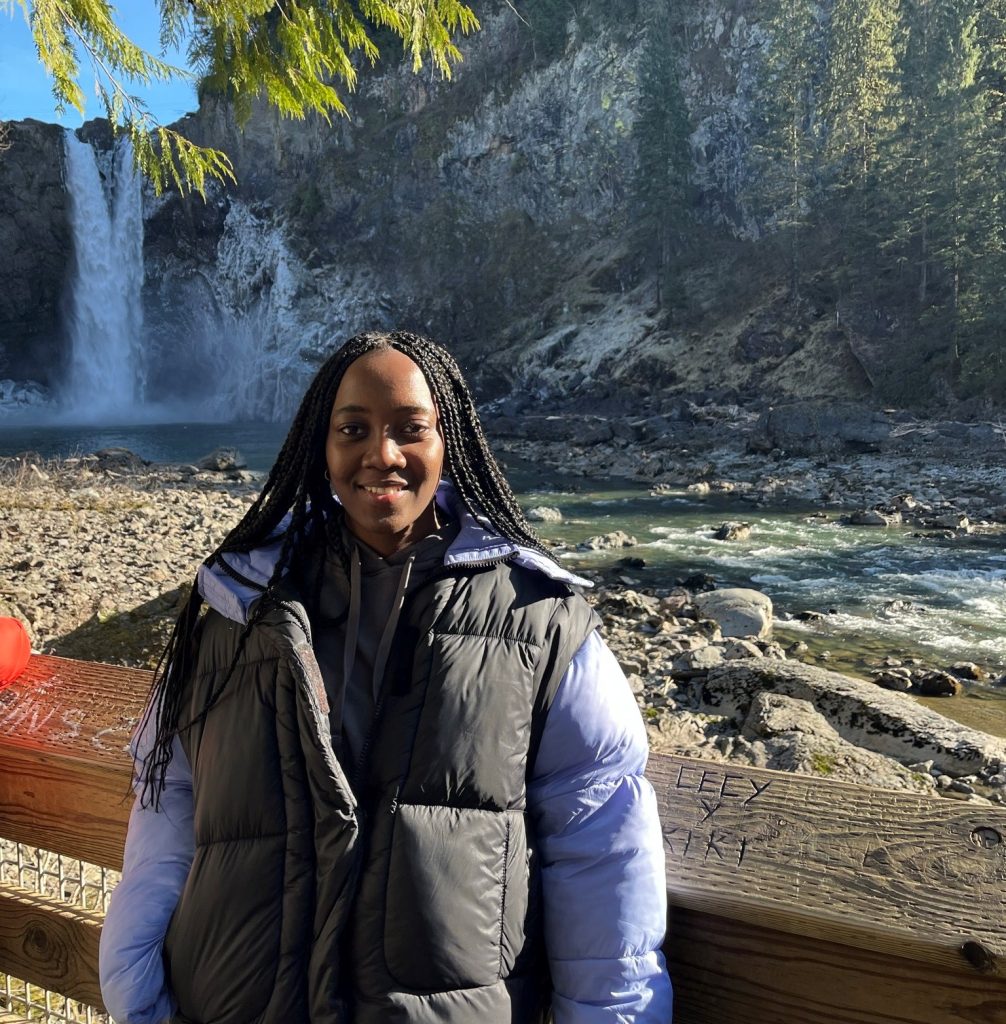
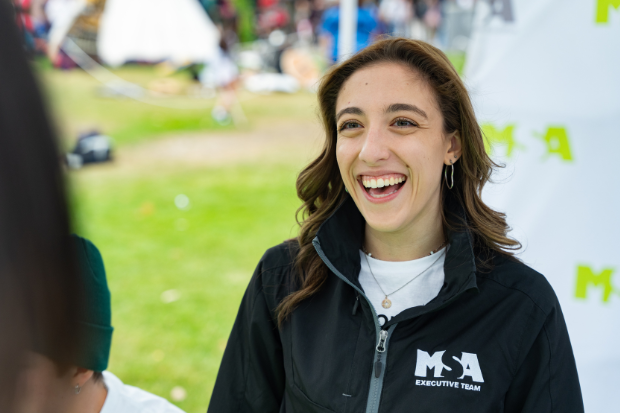
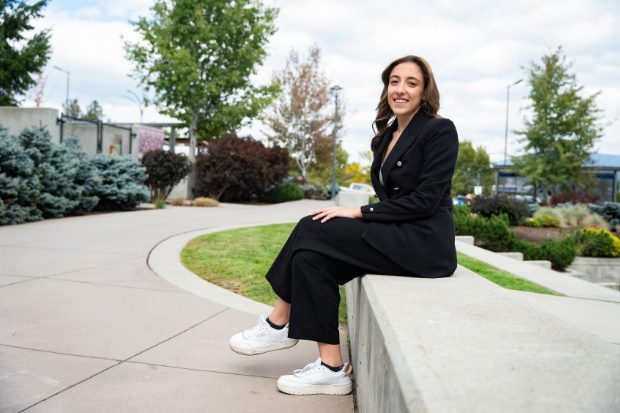

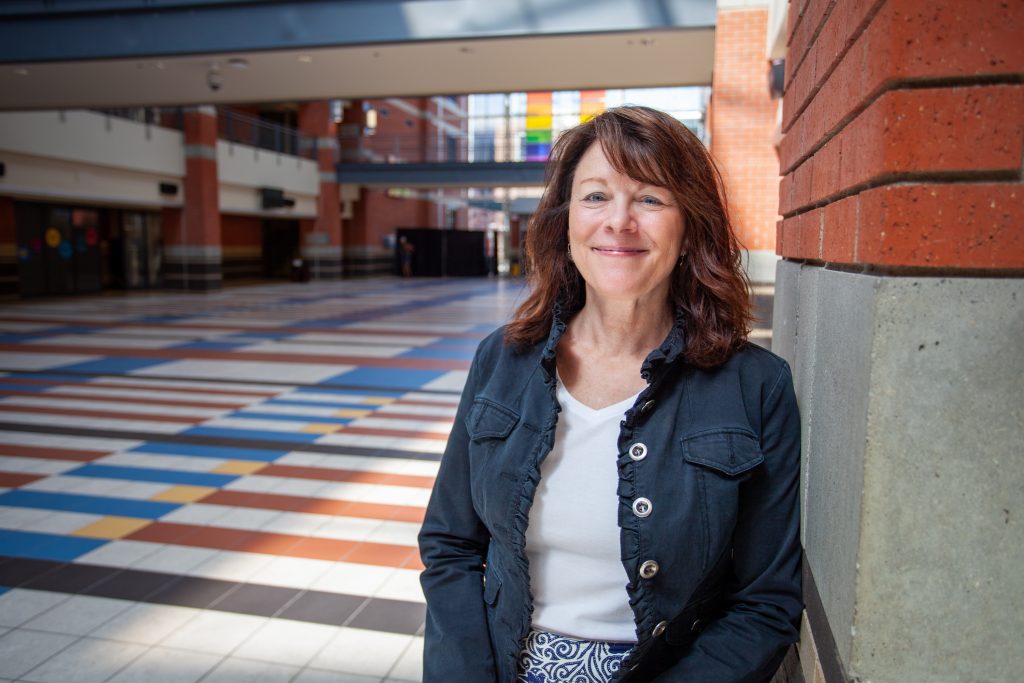
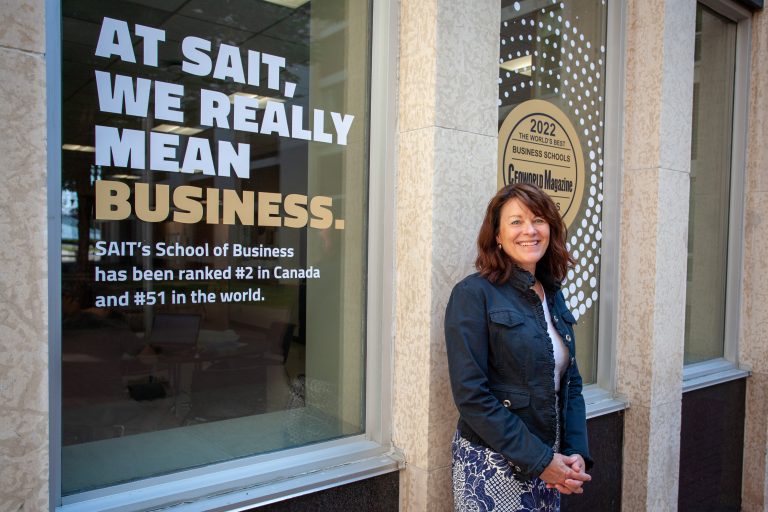

 orm” was supported by her capstone professor, who encouraged her to look at business differently. This in turn shaped her view towards sustainability and how corporate social
orm” was supported by her capstone professor, who encouraged her to look at business differently. This in turn shaped her view towards sustainability and how corporate social